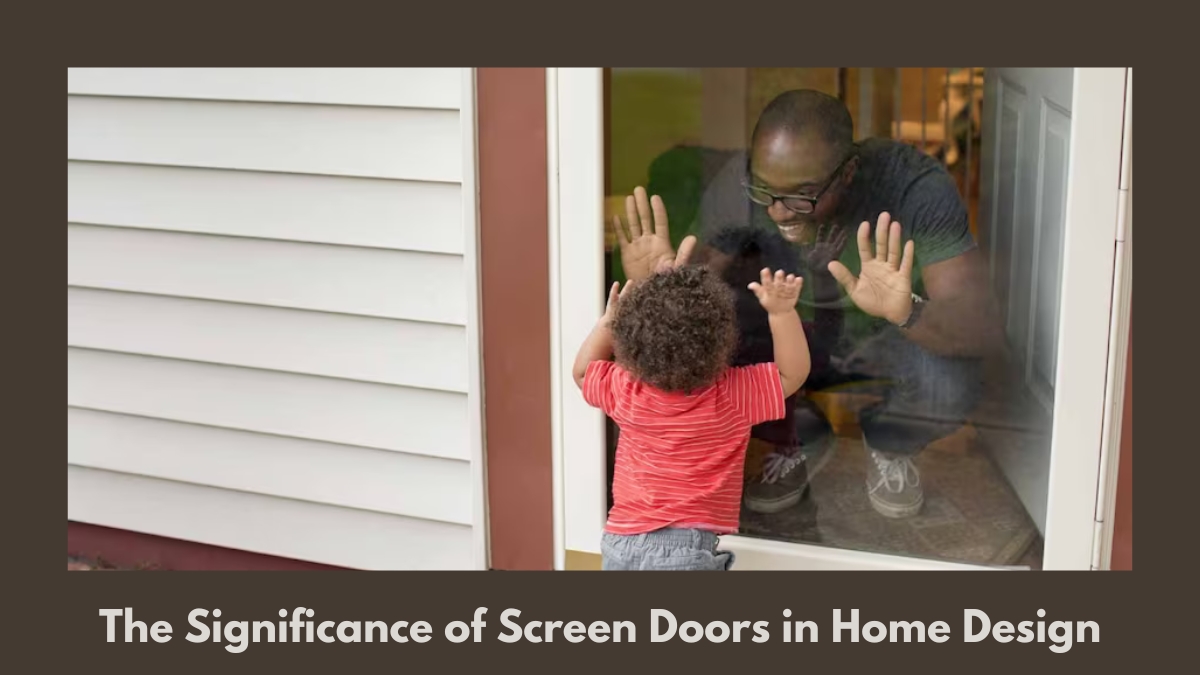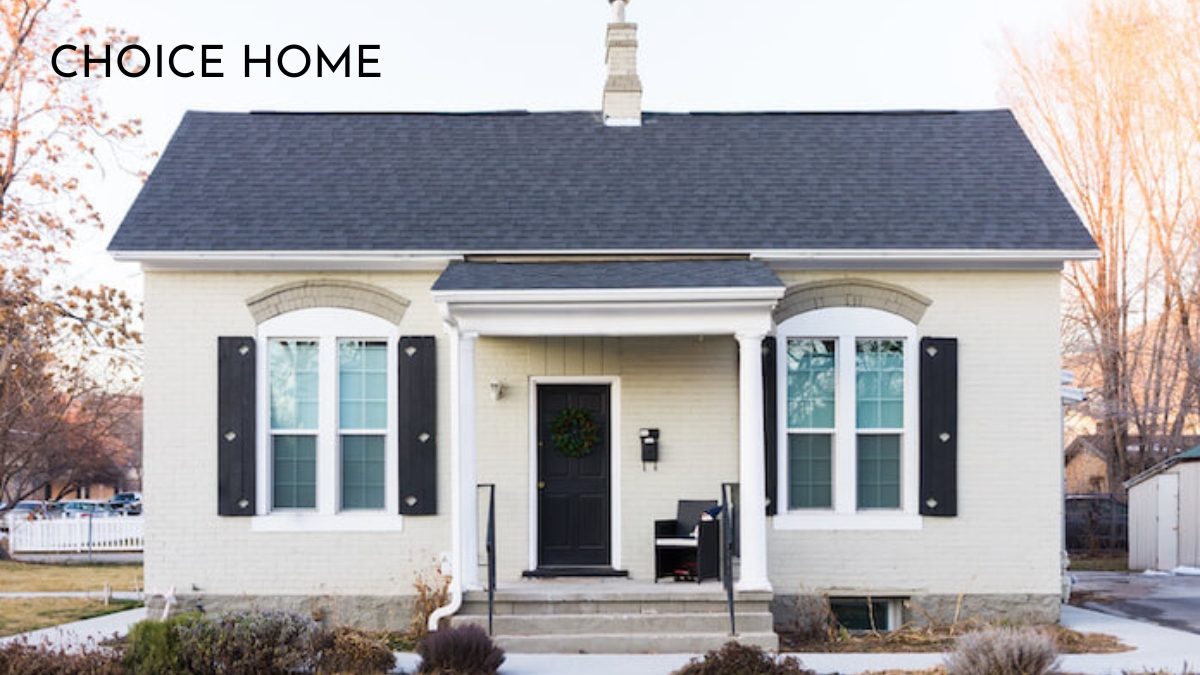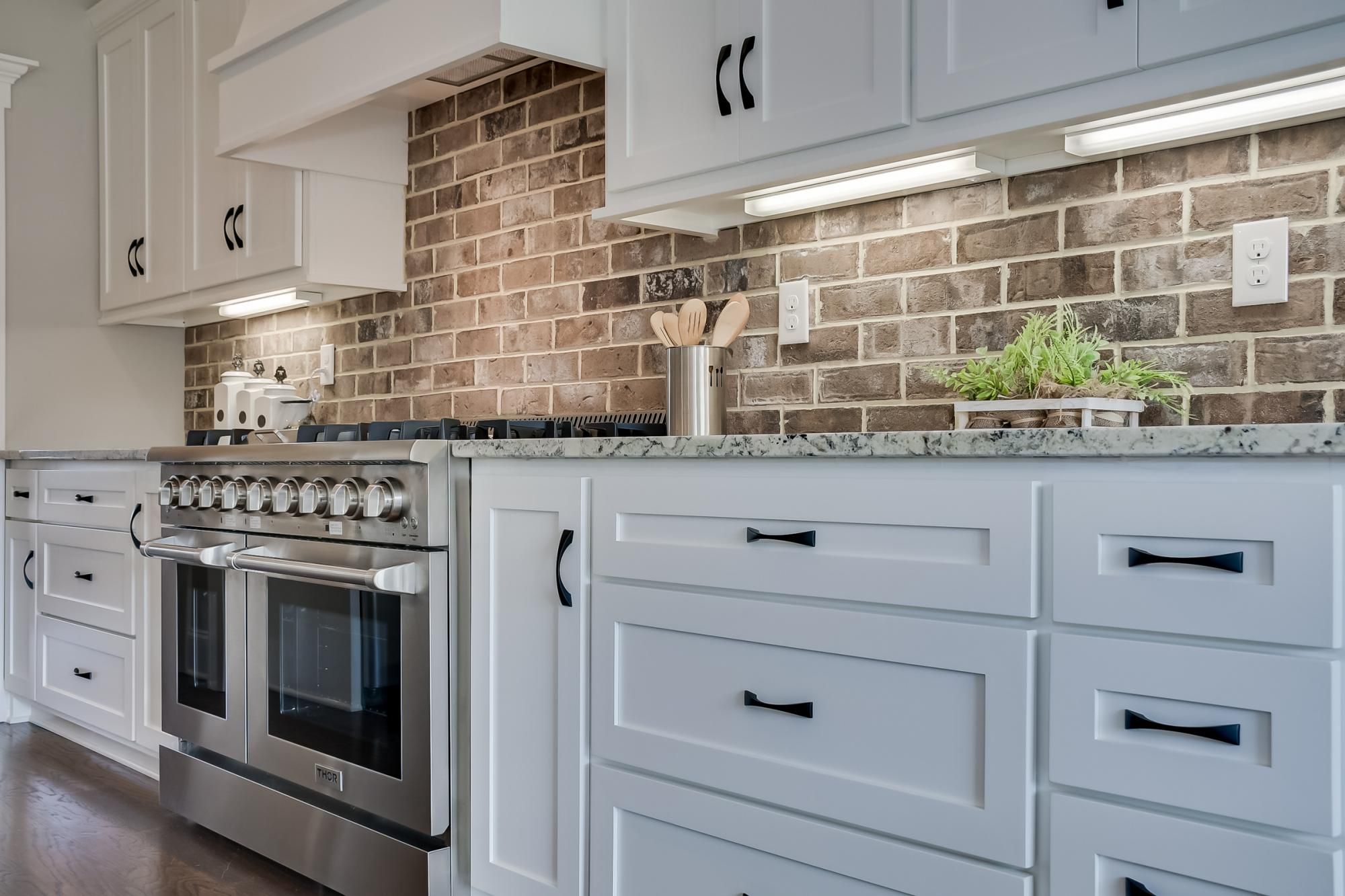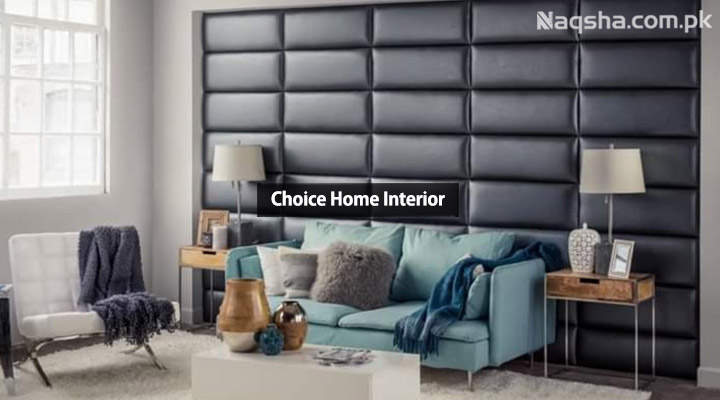Home Improvement
Factors to Consider When Selecting The Proper Shower Enclosure

Whether replacing an old enclosure or planning a complete remodel, choosing the proper shower enclosure is essential to your ultimate vision. Depending on how you want your shower to function, you can select hinged, pivot and sliding doors that suit your space needs. Glass thickness and finish also influence the look of your enclosure. Frosted or textured glass adds a touch of class to your bathroom and creates a spa-like environment.
Installation
The proper shower enclosure can make a big difference to the appearance of your bathroom. Choosing one that fits your space and needs can save time, money and stress when installing, especially with the help of professionals like Bordner Home Improvement. The first thing to do is look at your bathroom and consider how you use it. Is it a large family bathroom, an en-suite or a wet room? You may select the ideal enclosure for your bathroom after knowing how you want the shower to look. You may choose between a frameless or framed enclosure, depending on your bathroom style. Next, measure the width of your shower. It can be done from one side of your wall to the other, or if you are planning a corner shower, measure from your endpoint to the other corner wall. When you have measured, cut pieces of cement backer board to fit your shower base and install them on the studs with screws. Your shower walls’ backer board should be thick enough to cover all wood surfaces and prevent the tiles from sliding. Once the backer board is in place, it should be secured to the studs with one 1/2-inch self-tapping washer head screws. Once the backer board is securely fixed to the studs, the rest of your shower enclosure is ready to go!
Size
When choosing the proper shower enclosure for your bathroom, one of the first things you’ll need to do is measure the space where the new unit will be installed. It will help you determine the correct size of the enclosure for your bathroom and make it easier to budget accordingly. The type of shower enclosure you choose can also influence your bathroom’s overall look and feel. Glass showers, for example, are available in various sizes and can be set in an alcove or stand-alone, with all four sides enclosed by glass. For a more traditional aesthetic, framed showers are ideal. They connect thin glass panels to thick metal frames on the sides and connecting corners. These options are often more budget-friendly and are an excellent option for bathrooms that don’t have a lot of space to work with. If you’re looking to transform your bathtub into a shower, a tub partition is another option that can be stylish and practical. It comes in various designs, from sliding or swinging models to fixed ones that run from the bathtub to the ceiling. When determining the right size for your shower, consider all the other elements of your bathroom. For example, if children will use your new shower, selecting a model built to handle everyday bangs and knocks is best.
Style
The shower is the focal point of most bathrooms, so choosing the proper shower enclosure is essential. Whether you’re remodeling your current bathroom or building a new one, you must consider all the different styles, materials, and finishes available for your shower enclosure.
Shower Door Style: Hinged doors, or pivot or swinging enclosures, comprise one or more glass lites with two or three hinges on one side that allow the door to open inward or outward. This type of shower door can be installed along a flat wall or inside an alcove area.
Framed Enclosures: A framed shower enclosure connects the thin glass panels with thick metal frames on the sides and connecting corners for a more traditional look. These enclosures are affordable because they use very little glass and are easy to install.
Crushed Glass: This type of material is gaining popularity among homeowners, and it’s a great way to add a unique touch to your shower enclosure. It’s also an excellent choice for a small bathroom because it won’t be visible from outside the space.
Tile Options: If you want a unique look, opt for tiles with a textured finish. It can create a spa-like feel, especially when water dripping down the glass enhances the textured lines.
Materials
When remodeling your bathroom, one of the most critical decisions is choosing the proper shower enclosure. You’ll want a shower that fits your space, looks good and is easy to clean. Plenty of options exist, so you’ll want to choose a shower that meets your needs and budget. The material used to build your shower enclosure is a significant factor in deciding which one is right for you. It is because different materials have their pros and cons. For example, glass is an excellent choice for your shower because it’s easy to clean and comes in various styles. You can choose from clear glass that adds a sleek sheen to your bathroom, frosted or tinted types that help with privacy and patterned glass that adds a little flair to your bathroom. Glass is also a safe option for your shower because it’s often made with tempered glass, four times stronger than annealed glass. If broken, the glass will shatter into tiny particles that won’t hurt anyone else in your home. There are several other materials that you can use to build your shower, including stone and concrete. These are durable and can last a lifetime if cared for properly.
Home Improvement
Maximizing Home Comfort and Efficiency with Innovative Floor Vent Designs

Key Takeaways:
- Understanding the impact of different material choices and designs on floor vents can improve air quality and energy consumption.
- Recent technological advancements have paved the way for more innovative and efficient floor vent solutions.
- Aesthetics and functionality can be harmonized through carefully selecting floor vent design, contributing to a home’s overall ambiance.
- Maintenance and proper installation are crucial for the longevity and effectiveness of floor vent systems.
Introduction: The Role of Floor Vents in Modern Home Design
The significance of air distribution within a home must be considered. It plays a pivotal role in ensuring that the environment remains comfortable and the air remains fresh. Homeowners can masterfully control their living space’s climate with the proper floor vents. Today’s floor vents offer more than just functionality—they come in various innovative designs that can complement the modern home’s aesthetics, enabling them to blend into the overall home design or enhance it. Add to that the potential for improved energy efficiency, and you have a component that can make a significant difference in a living space’s overall comfort and functionality.
Understanding Different Types of Floor Vents
From brass to hardwood floor vents and everything in between, the range of materials available for floor vents is broader than ever. The choice of material affects not only the durability and longevity of the vents but can also play a significant role in shaping the feel of a home. Beyond the material, the design of the vent is equally essential, influencing the flow of air and the interior’s visual appeal. Whether the requirement is for a standard vent that blends into the background or a decorative piece that serves as an accent, the variety of options ensures a perfect choice for every homeowner. Proper attention to size and placement can assist in optimizing airflow and enhancing energy efficiency, making the selection of the floor vent an essential consideration in modern home design.
Advancements in Floor Vent Technology
In recent years, significant advancements have been made in the HVAC field, including innovations in floor vent designs. Modern vents are now equipped with features that not only promote better air circulation but also aim to enhance indoor air quality. For instance, some advanced models boast integrated sensors that adjust airflow automatically depending on the room’s temperature, as highlighted in an article from Home Comfort News. Innovative vents are particularly noteworthy as they communicate with other home automation systems to create an optimally heated or cooled environment. These technological strides are about comfort and achieving greater energy efficiency, which is crucial in today’s eco-conscious world.
The Science of Airflow: How Floor Vents Affect Home Climate
The principles of thermodynamics and fluid mechanics govern the function of floor vents in a home. The fundamental design of a vent can significantly impact how air is distributed throughout the space. For instance, vents positioned too close to one another may cause short-circuiting of air, leading to inefficient heating or cooling. Moreover, the right vent design can help mitigate common issues such as drafts, heat stratification, or excellent air pooling in lower areas. Understanding these airflow dynamics is essential when laying out a plan for vent placement in a home, making it crucial for designers and homeowners to pay careful attention to this aspect of HVAC system design.
Aesthetic Considerations for Floor Vents in Home Decor
Regardless of whether the intent is for the vents to stand out or blend in, a variety of aesthetic approaches can be taken. For a covert appearance, selecting vent materials that match the surrounding flooring can render them almost invisible to the casual observer. Alternatively, those looking to make a bold statement can opt for vents in contrasting materials or intricate patterns that add a touch of elegance to the space. By harmonizing functionality with aesthetic appeal, floor vents can be hidden and complementary to thoughtful interior design, enhancing the home’s overall ambiance and character.
Energy Efficiency and Sustainability in Vent Design
Energy efficiency is not only a matter of cost savings; it’s increasingly seen as a moral imperative in the face of environmental challenges. Selecting floor vents that contribute to a home’s overall energy efficiency can significantly impact both utility bills and ecological footprint. Modern floor vent design has embraced eco-friendly materials and manufacturing processes to minimize environmental impact without sacrificing performance or aesthetic quality. Design innovations strive to optimize airflow, thereby reducing the load on HVAC systems and, consequently, the energy required to maintain comfortable living conditions. A feature article from Sustainable Home News delves into the importance of sustainable design in modern homes, emphasizing how the right choices in vent design can align with these values.
Installation and Maintenance Best Practices
The initial installation of floor vents plays a crucial role in determining their performance and efficiency. An improperly installed vent can lead to leakage and inefficiencies in the HVAC system. That’s why it is often recommended that vents are installed by professionals who can ensure a snug fit and proper integration within the floor. Beyond installation, regular maintenance of floor vents is essential. Maintenance includes periodic cleaning to prevent the build-up of dust and particulates that could impede airflow and an inspection to ensure that the vents continue to operate effectively. Proactive maintenance not only prolongs the life of the vents but also enhances their performance over time.
The Future of Floor Vents: Trends and Innovations
Like many other home features, floor vents are subject to evolving trends and consumer demands. The growing trend of smart home technology, for example, is influencing the development of vents that can be controlled remotely via smartphones or integrated with other smart devices. Additionally, there’s an increased emphasis on design that aligns with modern interior aesthetics without compromising efficiency. Future innovations in vent design will likely continue to balance these considerations, offering homeowners solutions that are environmentally friendly, energy-efficient, and visually appealing.
Considering Health and Allergy Factors
Indoor air quality has become a significant health concern, especially for allergies and asthma patients. The right design and installation of floor vents can significantly reduce dust mites, pollen, and other allergens distributed through a home’s HVAC system. Features such as vent filters can trap these particles before they spread, maintaining a healthier living environment. Homeowners must consider these health factors when selecting floor vents, as the correct choice can contribute to the overall wellness of the occupants.
Decision Factors: Choosing the Right Floor Vents for Your Home
The decision to choose the suitable floor vents for a home is multifaceted. Homeowners must weigh factors such as compatibility with their HVAC system, design preferences, budget constraints, and potential environmental impact. It’s essential to also think about the long-term aspects, like the durability of materials and how maintenance requirements will suit the homeowner’s lifestyle. In the quest to achieve optimal functionality and an attractive home environment, evaluating these considerations will yield a choice that serves both immediate needs and long-term satisfaction.
Home Improvement
Enhancing Home Comfort with Residential Screen Doors: Benefits and Selection Tips

Key Takeaways:
- Enhanced air quality and energy efficiency are critical benefits of screen doors.
- Diverse types of screen doors cater to different home aesthetics and functionalities.
- Security features are integrated into modern screen door designs to ensure homeowner peace of mind.
- Customization options that allow for individual expression while selecting a screen door.
- Maintenance best practices to ensure the longevity of screen doors.
- Technological advancements within the screen door industry to look out for.
The Significance of Screen Doors in Home Design
The role of screen doors extends well beyond mere aesthetics or keeping unwanted bugs at bay. Serving as the intermediary between private indoor spaces and the breath of the outdoors, they encapsulate the core principle of harmonizing indoor comfort with nature’s charm. When one opts for including residential screen doors, the benefits are manifold, encompassing improved air circulation, increased exposure to natural light, and an often-overlooked psychological uplift. Homeowners increasingly recognize the intrinsic value of a well-designed screen door, enhancing their abode’s visual appeal and fostering a healthier environment conducive to well-being.
Types of Residential Screen Doors
In an era of vast choices, selecting the correct type of screen door is an exercise in reflecting one’s personal style and lifestyle needs. The market offers traditional hinged screen doors, revered for their classic appeal, and the convenience of sliding doors, which are space-saving and ideal for limited areas or patios. Those looking for a blend of innovation and practicality might gravitate toward retractable screen doors that offer the advantage of invisibility when not in use. Magnetic screen doors represent a modern twist, providing hands-free passage and automatic closure. Materials range from durable metals to natural woods, each offering unique textural and visual outcomes. Features such as build quality, ease of operation, and durability are crucial in determining the appropriate selection, ensuring a product that meets the functional requirements and resonates aesthetically.
Environmental and Health Advantages of Installing a Screen Door
Installing a screen door by commercial door operators offers palpable benefits that go hand in hand with environmental stewardship and personal health. By promoting the cross-ventilation of fresh air, homeowners can substantially reduce their reliance on mechanical cooling systems, thereby diminishing energy consumption and contributing to a healthier environment. This natural flow of air helps mitigate the accumulation of indoor airborne contaminants, which can be particularly beneficial for individuals with allergies or respiratory issues. Moreover, including screen doors as a passive cooling strategy can be a testament to responsible homeowner practices that align with a broader commitment to sustainable living while simultaneously curbing energy costs and fostering an atmosphere of openness and connectivity with the outdoor environment.
Security Measures and Screen Doors
While the openness of screen doors is among their greatest assets, it does not necessitate a compromise in home security. Advances in design have seen the emergence of screen door models that integrate robust materials and enhanced locking mechanisms, thereby acting as a formidable deterrent to intrusions. Manufacturers have been attentive to consumer demand for products that marry the allure of open-door living with peace of mind, developing screen doors that are resilient to forced entry and capable of withstanding harsh weather conditions without faltering.
Customizing Screen Doors to Your Home Aesthetics
A screen door is more than just a functional add-on. Still, it can also be a statement of style that harmonizes with the home’s existing architectural nuances or introduces an eclectic visual element. The customization process is a journey through many choices in color, patterns, and finishing materials, where the desired outcome is both an aesthetic delight and a testament to durability. The texture of the screen material offers a playground of tactile and visual variance, potentially becoming a subtle centerpiece that complements modern and traditional design palettes.
Maintenance and Care for Screen Doors
Like any other feature of the home’s exterior, screen doors demand attention and care to ensure they remain in prime condition. Routinely inspecting and cleaning the mesh to prevent dust build-up and addressing any tears or damages immediately can prevent minor issues from escalating. Hinges and locks should be checked periodically for functionality, and it is prudent to apply lubricants to maintain smooth operation. Proactive maintenance extends the screen door’s lifespan and ensures it performs its duties effectively.
Installation Considerations for Screen Doors
Installation is a pivotal aspect that can dictate a screen door’s smooth functioning and longevity. Homeowners are faced with the decision of tackling the task independently or enlisting the skills of professionals. DIY enthusiasts may find this a rewarding project, but it’s essential to gauge one’s proficiency and the complexity of the installation process before diving in. Ensuring the right fit and alignment can be the difference between a screen door that operates flawlessly and one that becomes a persistent nuisance.
Cost-Benefit Analysis: Investing in a Quality Screen Door
While the upfront expense of a superior screen door might be notable, its value proposition extends far beyond the initial investment. Quality screen doors heighten the home’s aesthetical appeal and contribute to tangible energy savings over time. The additional layer of security and reduced need for air conditioning that a well-chosen screen door brings to the table embodies a prudent investment that can translate into considerable savings and increased property value.
Technological Advancements in Screen Door Manufacturing
Today’s manufacturing landscape for screen doors speaks to a narrative of innovation and continuous improvement. Materials engineered for ultimate durability and mesh designs are at the forefront, allowing maximum airflow while being nearly invisible. Smart home integrations are also a growing trend, with capabilities such as remote locking systems and sensors that align with modern, tech-savvy lifestyles.
Conclusion: The Future of Residential Screen Doors
Looking to the horizon, screen doors are set to evolve alongside the currents of sustainable design and smart home technology. The quest for greener, more energy-efficient homes will likely drive further refinements in materials and construction. In contrast, the proliferation of connected home ecosystems could usher in a new wave of intelligent screen doors that amplify convenience and security.
They are investigating how screen doors complement energy-efficient home strategies. The U.S. Department of Energy offers guidance on energy-saving door selections. For additional insights into better home ventilation and screen doors’ role, peruse the thoughtful exploration by Inhabitat.
Home Improvement
Unlocking the Key to Your Dream Home: Exploring Choice Home Options

Introduction:Choice Home
Are you on a quest for your dream home? Look no further! In this comprehensive guide, we delve into the concept of “choice home” to help you navigate through the maze of options and find the perfect abode for you and your loved ones.
What is a Choice Home?
A choice home refers to a residence that offers a range of customizable features and amenities, allowing homeowners to tailor their living space according to their preferences and lifestyle. Unlike traditional homes, which come with fixed layouts and designs, choice homes empower buyers to personalize various aspects of their property, from floor plans to finishes.

Benefits of Choosing a Choice Home:
- Personalization:
- With a choice home, you have the freedom to customize your living space to reflect your unique style and needs. Whether you prefer an open-concept layout or cozy nooks, the possibilities are endless.
- Flexibility:
- Choice homes are designed to adapt to your changing needs over time. Whether you’re expanding your family or downsizing in retirement, you can modify your home to accommodate your evolving lifestyle.
- Quality Assurance:
- Many choice home builders prioritize quality craftsmanship and materials, ensuring that your home is built to last. From energy-efficient appliances to durable flooring, you can rest assured that your investment is protected.
- Community Amenities:
- In addition to customizable homes, choice home communities often offer a wide range of amenities, such as parks, pools, and fitness centers. This allows residents to enjoy a vibrant and active lifestyle without ever leaving the neighborhood.
Key Features of Choice Homes:
- Flexible Floor Plans:
- Choice homes typically offer a variety of floor plan options to suit different preferences and budgets. Whether you’re looking for a spacious family home or a cozy apartment, you can find a layout that meets your needs.
- Customizable Finishes:
- From countertops to cabinetry, choice homebuyers have the opportunity to select their preferred finishes and fixtures. This allows you to personalize your home and create a space that truly feels like your own.
- Energy-Efficient Design:
- Many choice homes incorporate energy-efficient features, such as insulated windows and high-efficiency HVAC systems, to reduce utility costs and minimize environmental impact.
- Smart Home Technology:
- To enhance convenience and connectivity, some choice homes come equipped with smart home technology, allowing residents to control lighting, temperature, and security systems from their smartphones or tablets.
Choosing the Right Choice Home for You:

When selecting a choice home, it’s essential to consider various factors to ensure that it aligns with your preferences and lifestyle. Here are some tips to help you make the right choice:
- Define Your Priorities:
- Before beginning your search, take some time to identify your must-have features and amenities. Whether you prioritize location, size, or specific design elements, knowing what you want will streamline the decision-making process.
- Research Builders:
- Explore reputable choice home builders in your area and research their track record, customer reviews, and portfolio of past projects. Look for builders who prioritize quality, customer satisfaction, and transparency.
- Visit Model Homes:
- Take advantage of model home tours to experience different layouts and design options firsthand. Pay attention to details such as room sizes, finishes, and overall craftsmanship to determine which home best meets your needs.
- Consider Long-Term Value:
- While customization is essential, it’s also essential to consider the long-term resale value of your choice home. Opt for upgrades and features that are likely to appeal to future buyers and enhance the overall marketability of your property.
Conclusion:
In conclusion, a choice home offers unparalleled flexibility, customization, and quality for homeowners seeking to create their dream living space. By understanding the benefits, features, and considerations associated with choice homes, you can embark on your homebuying journey with confidence and clarity. So why settle for a cookie-cutter home when you can have the freedom to design your perfect sanctuary? Explore the world of choice homes today and unlock the key to your dream home!
YOU MAY ALSO LIKE: Exploring Heardle 90s: The Ultimate Music Guessing Game
FAQ,S
What is a choice home?
A choice home refers to a type of residence that offers customizable features and amenities, allowing homeowners to tailor their living space according to their preferences and lifestyle. Unlike traditional homes with fixed layouts, choice homes empower buyers to personalize various aspects of their property, from floor plans to finishes.
2. What are the benefits of choosing a choice home? Choosing a choice home comes with several benefits, including:
- Personalization: You have the freedom to customize your living space according to your unique style and needs.
- Flexibility: Choice homes can adapt to your changing lifestyle, whether you’re expanding your family or downsizing in retirement.
- Quality Assurance: Many choice home builders prioritize quality craftsmanship and materials, ensuring that your investment is protected.
- Community Amenities: Choice home communities often offer a wide range of amenities, such as parks, pools, and fitness centers, allowing residents to enjoy a vibrant lifestyle.
3. What are the key features of choice homes?
Key features of choice homes include:
- Flexible Floor Plans: Choice homes offer a variety of floor plan options to suit different preferences and budgets.
- Customizable Finishes: Homebuyers can select their preferred finishes and fixtures, allowing for personalized design.
- Energy-Efficient Design: Many choice homes incorporate energy-efficient features to reduce utility costs and minimize environmental impact.
- Smart Home Technology: Some choice homes come equipped with smart home technology, allowing residents to control lighting, temperature, and security systems remotely.
4. How do I choose the right choice home for me?
To choose the right choice home, consider the following factors:
- Define Your Priorities: Identify your must-have features and amenities.
- Research Builders: Explore reputable choice home builders and their past projects.
- Visit Model Homes: Experience different layouts and design options firsthand.
- Consider Long-Term Value: Choose upgrades and features that enhance the resale value of your property.
5. What are some tips for customizing a choice home?
When customizing a choice home, consider the following tips:
- Work with a reputable builder who offers a range of customization options.
- Prioritize upgrades that align with your lifestyle and preferences.
- Consider the resale value of your chosen upgrades.
- Don’t overlook practical features such as storage solutions and energy-efficient appliances.
- Communicate clearly with your builder to ensure that your vision is realized.
-

 Apps7 months ago
Apps7 months agoHow to Send a Snap with the Cartoon Face Lens
-

 Entertainment1 year ago
Entertainment1 year agoUfreegames – The Ultimate Gaming Platform
-

 News1 year ago
News1 year agoNalco Q3 Profit Drops 69% YoY to Rs 256 Crore: An Analysis
-

 Business5 months ago
Business5 months agoDTF Printer: A Game-Changing Solution for Printing
-

 Entertainment7 months ago
Entertainment7 months agoDitto Pokemon Go: The Ultimate Guide to Catching this Shape-Shifting Pokemon
-

 Celebrity1 year ago
Celebrity1 year agoমিচিয়াকি তাকাহাশি – A Role Model for Success
-

 Accessary12 months ago
Accessary12 months agoCorsair Void Pro RGB Wireless: The Ultimate Gaming Headset for Serious Gamers
-

 Entertainment9 months ago
Entertainment9 months agoExploring “Pirates of the Caribbean: Tales of the Code: Wedlocked”



